At 57, Debra Messing still looks just as she did at 30 when she starred as Grace Adler, the straight best friend of gay Will Truman, in the breakthrough sitcom that shattered glass ceilings. The only visible change on her face these days are the lines of fatigue.
The past two years have taken a heavy toll on Messing, an actress with a deeply rooted Jewish identity. She has lost people she believed were friends, lost trust in the community from which she emerged to become an Emmy winner and a star recognized everywhere. Here and there she also lost hope — but she always found it again.
6 View gallery
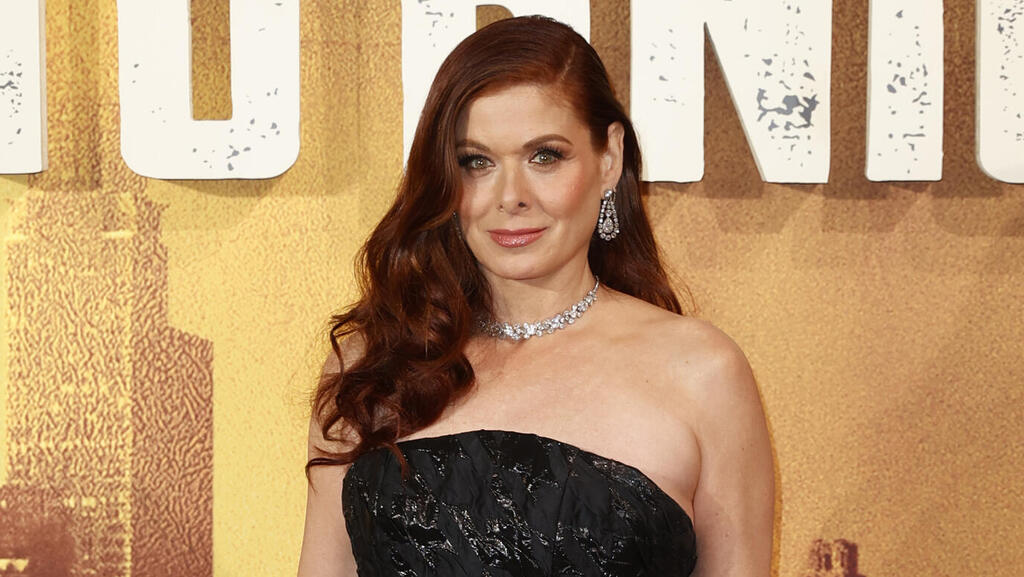

Debra Messing
(Photo: John Phillips/Getty Images for Warner Bros. Pictures)
The interview with her — conducted between the second anniversary of Oct. 7 and the return of the last hostages — was carried out in a quivering voice, moist eyes and many pauses to draw breath. It’s doubtful there is anyone else in Hollywood who has sunk as deeply into Oct. 7 and all that has followed — or absorbed as much hatred over the past two years — as Debra Messing.
“I was at home, I walked into the kitchen, switched on the TV and saw images I didn’t quite understand,” Messing now recalls, “My brain just could not process what my eyes were seeing. Frankly, I don’t have many clear memories of Oct. 7, aside from sitting in the kitchen and calling Jewish friends to make sure they saw what was happening and that I wasn’t hallucinating. I still don’t remember the days afterward — I was in complete shock, not functioning in what was real time.”
Everything is a bit blurry two years later, but at least during the first 24 hours, it seemed as if everyone in Hollywood was responding the right way —then it changed, and it changed fast.
“I was devastated by Hollywood’s response. I was broken. Hollywood was built by Jews who escaped the Holocaust and weren’t allowed to work in any other profession, so they invented show business. I was certain that because it is broadly liberal and inclusive, Hollywood would come out strongly against the massacre. When I saw the responses I thought the world flipped inside‑out. I felt physically nauseated.”
Did anyone try to talk with you?
“No one. No one reached out. Their silence broke my heart. Fortunately there is a WhatsApp group that now numbers 7,800 people — at first we were quite few: Jewish creators, publicists, managers, writers and directors who felt we must defend Israel, its right to exist, and chiefly must fight against all the propaganda. The first thing we did was write to President Biden asking him to bring back the hostages from dozens of countries. We sent the letter to people across Hollywood and they refused to sign. That was my awakening, because the letter only referenced the wartime crime of kidnapping people from all over the world — we didn’t even talk about the conflict itself. I thought this would pass quickly, that people would get back to reality — but clearly it didn’t, it only got worse. I feel betrayed by Hollywood, especially because I was so deeply rooted in that community. I’m processing this — very slowly.”
Messing grew up in a Zionist, Israel‑connected Jewish household. She realized early that being Jewish — even in the most liberal parts of the United States — was a constant handicap. “I was one of three Jewish children in all of my school. As a child I dealt with very intense antisemitism,” she recalls.
6 View gallery
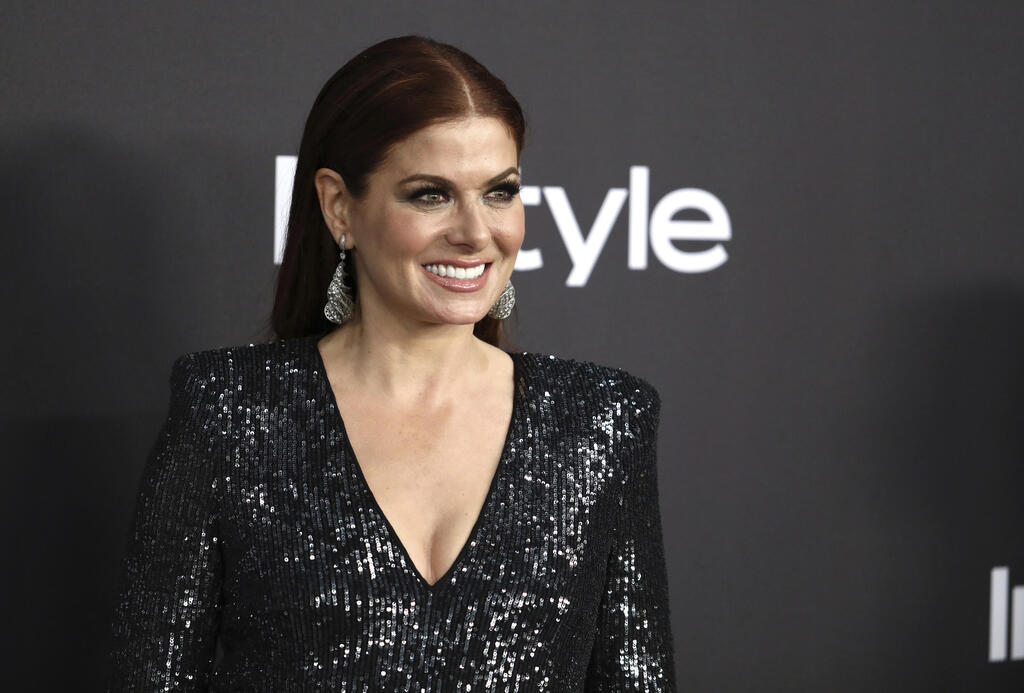

Debra Messing
(Photo: Matt Sayles/Invision/AP)
“In progressive Rhode Island. My first memory is from second grade when we were lining up for gym class and one of the boys said to me: ‘Go to the end of the line, kike.’ I didn’t know what it meant, but the teacher did — and sent him to the principal’s office. All the kids glared at me saying: ‘What did you say to get him in trouble?’ At that moment I learned something I would not fully understand until decades later about the instinct to hide immediately.”
How did your parents respond?
“They sat me down and explained we are proud Jews who stand with our people and with the State of Israel. Later, at age nine or ten, my grandfather arrived to visit, and the next morning we found a swastika spray‑painted on his car. So from a very early age, it was clear to me that I was different and that people didn’t like us. My entire childhood, I heard about the Holocaust and my duty to fulfill the lives of the ones we lost. So even though outside my home there was no representation of joyful Jewish life, my parents created a happy Jewish home. I remained very aware of that my whole life. In 2017, when the neo‑Nazi rally in Charlottesville happened and Donald Trump said “there are good people on both sides,” I realized I needed to step into activism against antisemitism — but I never thought I would encounter such hatred of Jews as we have since Oct. 7 and after.”
Over the past two years, you’ve faced a wave of abuse on social media. Was there a point when you thought it wasn’t worth the pain?
“No. People have suffered far more than I have these past two years. I felt I had to do what I could. I produced the film October 8 about the rise of antisemitism in the United States, and I’ve been screening it and speaking about it around the country. My first visit to Israel was two months after Oct. 7. When I was a child, every time I wanted to travel with my parents — who visited Israel many times — they would say, ‘It’s not safe now.’ Then my career took off, I became a mother, and it never happened. But this time I had to come — to witness, to film hostage families, to see the destruction in the kibbutzim, to speak with the wounded. I entered Gaza with the IDF, visited tunnels, hospitals. I filmed everything and posted it all on Instagram — which, of course, unleashed a tsunami of hate. But I felt stronger than ever.”
Messing pauses for what feels like forever, swallows tears, and says: “These have been two very, very long years.”
6 View gallery


Debra Messing during her visit to Israel
(Photo: IDF Spokesperson)
Do you view Hollywood differently now — even just as a workplace?
“Yes, I see Hollywood as a potentially hostile environment for myself and for other Jews who believe in Israel’s right to exist. But I continue to work, and it reminds me of the power of storytelling. More than ever, I want to tell stories about Jewish life, because people are only interested in Jewish stories when they’re about dead Jews.”
Yes, Jews are only interesting when it’s about the Holocaust.
“Exactly. And I want to help create comedies about family, music, humor, love, dysfunction — all the things that make us part of humanity. Maybe it will even reach some of the people working so hard to dehumanize us.”
Messing studied acting at NYU, where she earned her master’s degree in performing arts. She first broke through in the mid-1990s sitcom Ned and Stacey, but everything changed when a script landed in her hands — a longshot series about a Jewish single woman in Manhattan living with her gay best friend, played by Eric McCormack. Will & Grace ran for eight seasons at the start of the 2000s and returned for another three toward the end of the decade. The show won 18 Emmy Awards — one of them sits on the shelf behind Messing, who helped shape Grace Adler into a legendary comedic character that sparked social change in America.
Did you expect any of that?
“Oh God, not even close. Just to give you context: in the ’90s, Ellen DeGeneres had a hugely popular sitcom, but after her character came out, the show was canceled and Ellen was blacklisted. Six months later, we shot our pilot. I remember sitting there thinking they’d pull us off the air after two episodes. Miraculously, the writers created four funny, unique characters — Will, Grace, Jack and Karen — and a world of friendship that people fell in love with even before the show focused more deeply on gay life.”
6 View gallery
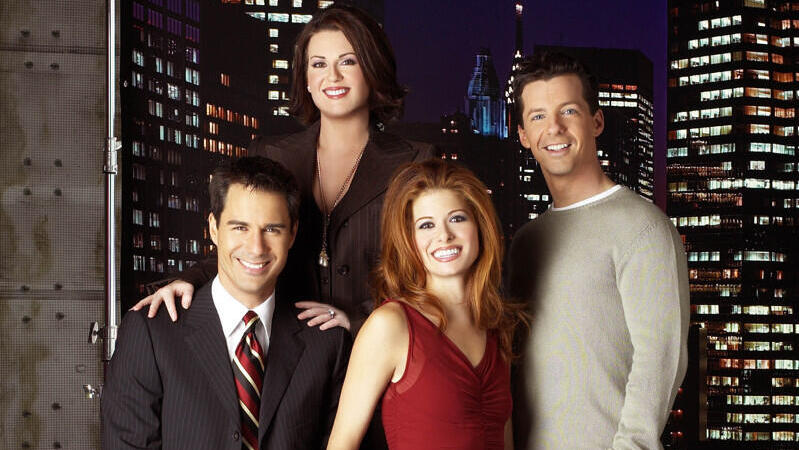

From ‘Will & Grace’
(Photo: NBC, courtesy of yes)
“Yes. It was very deliberate. The creators were smart enough to know that we had to bring in the audience first and stay on the air — only then could we really push boundaries. I remember after the second season, I was in an airport in the middle of America and a woman came running up to me and said, ‘You’re Grace!’ I said yes, and she told me, ‘I’ve been watching from the first episode. My husband hates gay people and refused to watch with me. But little by little, he started sitting in the room. At first, he read the newspaper, but you could see he was listening. Now he walks around doing Jack impressions.’”
Was that deliberate — to make Will the opposite of the existing gay stereotype?
“Exactly. There are a million ways to be gay, just like there are a million ways to be straight. But what we saw on primetime TV was always a caricature of gay identity. It was played for cheap laughs and never reflected any real attempt to understand the person. In our show, Will and Jack represented two very different gay men — and they weren’t just side characters; they were the heart of the story.”
Grace Adler was Jewish. Was that intentional too?
“Yes. When we shot the pilot, it wasn’t clearly defined. I went to the creators, Max Mutchnick and David Kohan — both Jewish — and said, ‘I want to make her Jewish, really Jewish.’ I felt there was a chance to show the world a Jewish woman as just another single woman living in New York, trying to do her best. I know it meant a lot to many people, especially Jewish girls.”
6 View gallery
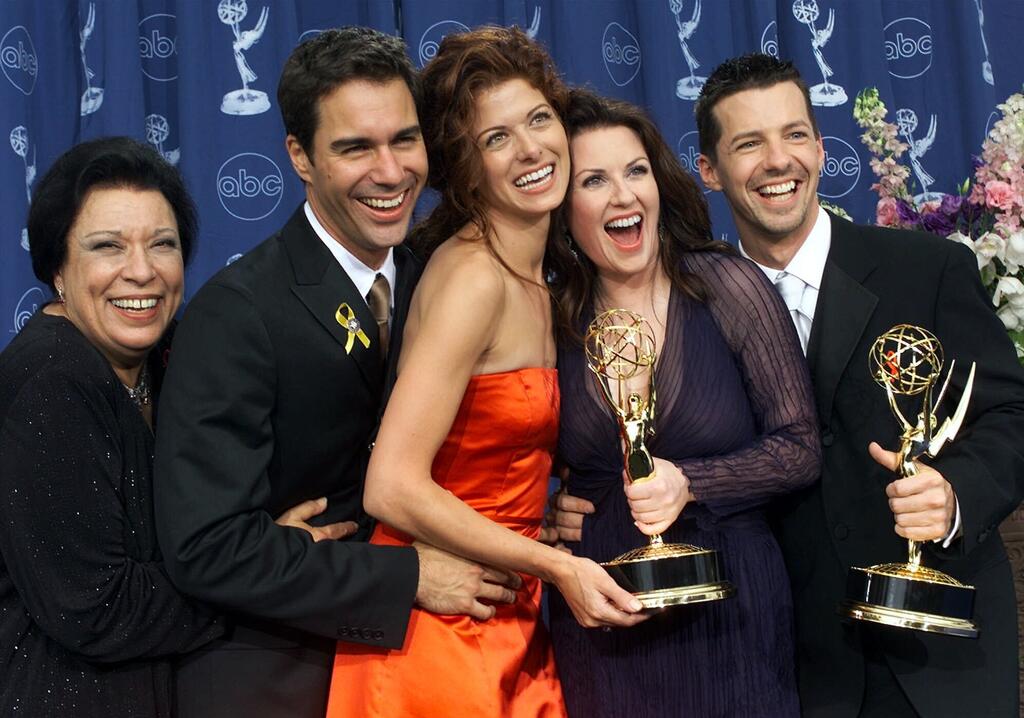

Messing with the cast members of ‘Will & Grace’
(Photo: AP)
Every actor dreams of landing one big, successful, culture-shifting role, but often, there’s a cost down the line.
“Most actors don’t get to be part of something like Will & Grace. I became very famous because of Grace — people loved her, and I loved her. I never felt like she held me back. But I’m honest with myself — I don’t think I’ll find another script where I’ll read it and say, ‘Oh God, I have to do this.’”
Messing will soon return to Israel to receive a lifetime achievement award from TLVFest, the Tel Aviv International LGBTQ+ Film Festival, taking place from October 23 to November 2. For her, it marks a full-circle moment: decades of activism for the LGBTQ+ community — long before she became the star of a culture-changing TV series — combined with her now-deep connection to Israel. Messing is genuinely moved.
“At NYU, we had a very beloved gay theater professor,” she recalls. “He had visible scars on his arms and legs, and we were told he had AIDS. It was the early days of the epidemic. It was the first time I saw someone with the disease. When he was dying, my boyfriend — who became my husband — and I went to the hospital. The room was packed with former students waiting to say goodbye. I leaned in and told him I loved him and that it was okay to go. But I could see in his eyes how clear-minded he still was — and how much he didn’t want to die. He was only 41. That changed my life and turned me into an activist for the community.”
6 View gallery
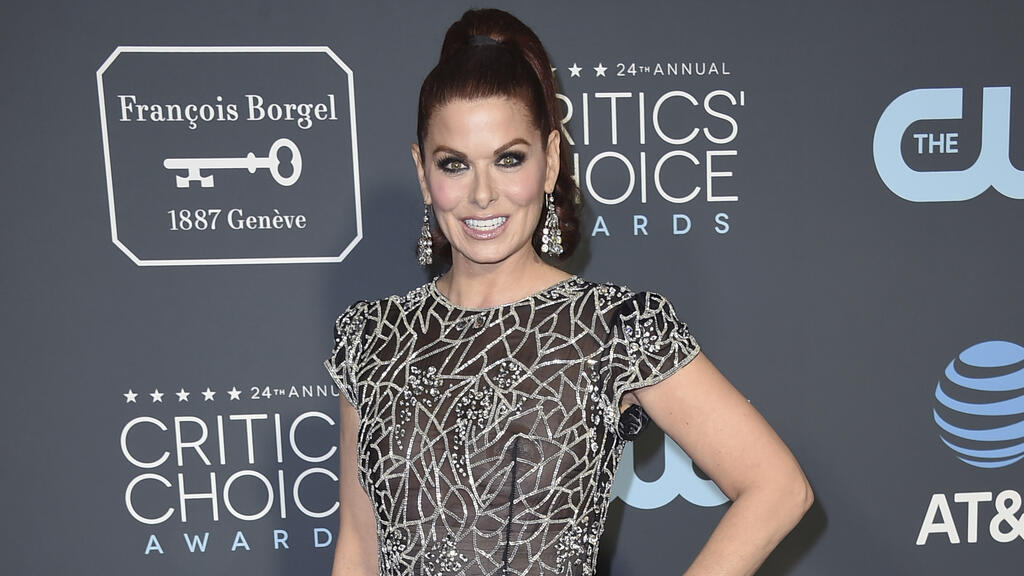

Later, she traveled to Zimbabwe, visiting AIDS clinics and orphanages. She even filmed herself taking an HIV test to help destigmatize it. “When I entered the waiting room for the test, there was a TV playing an episode of Will & Grace,” she says. “That’s when I truly understood the value of my platform.”
“We’ve spent the past two years trying to explain to ‘Gays for Palestine’ that Israel is the only country in the Middle East where they can live openly. Anywhere else, they’d be thrown off rooftops. But nothing helped. I honestly can’t think of anything more meaningful than receiving this award in Tel Aviv — especially now that the hostages are home and this nightmare is over.”

